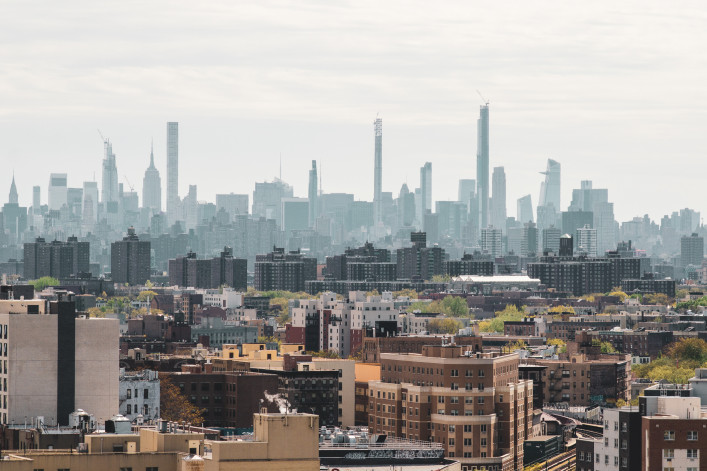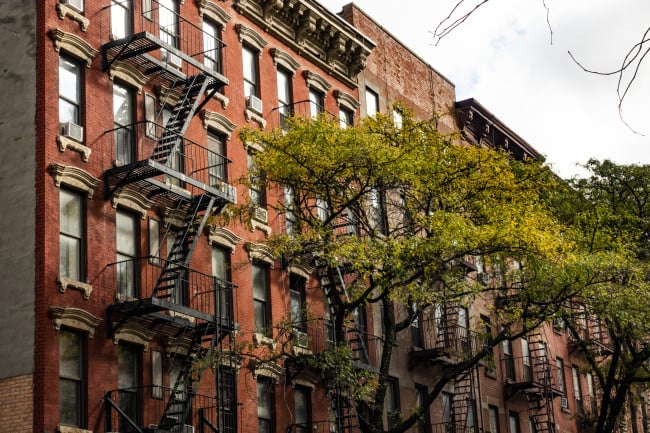3 additional rights you have if you’re a senior or have a disability and live in rent-stabilized housing
- You can break your lease without penalty if you need to move into a senior living facility
- If your landlord takes over the unit for themselves they must provide an alternate apartment

If you’re not sure whether your apartment is rent stabilized, request your rent history.
iStock
Age may be just a number, but in New York City, being a senior gives you additional rights as a rent-stabilized renter.
New Yorkers who are 62 years of age or older, or those with disabilities, are entitled to more protections from eviction and rent increases if they live in a rent-stabilized apartment.
That includes the ability to freeze their rent and score an alternate apartment in some eviction cases, according to the New York State Division of Housing and Community Renewal (DHCR). Plus, seniors and those with disabilities are able to move into senior living without penalty.
Disabled renters also have additional protections from discrimination not outlined in the city’s Rent Stabilization Laws, noted attorney Catherine Grad, a partner at Himmelstein McConnell Gribbin & Joseph, a Brick sponsor FYI.
If you’re not sure whether your apartment is rent stabilized, you can request your rent history through New York state or by using the nonprofit JustFix online tool. For more details, check out this story on how to research your building.
And make sure to read on for three rights you may not know you had if you're a senior or have a disability and live in rent-stabilized housing.
Getting a new apartment after eviction
One of the ways a NYC landlord can evict a rent-stabilized tenant is if the landlord or their family intends to use the apartment themselves, according to the DHCR. But if you or your spouse is 62 years old or older, your landlord can’t evict you without providing an equivalent or better apartment in a nearby area.
Importantly, that apartment has to have the same or lower monthly regulated rent, according to New York’s Rent Stabilization Code.
That same rule applies to a rent-stabilized renter who has a disability, or a renter who has lived in their unit for 15 years or more—your landlord must provide an alternate apartment if they evict you in order to use the apartment themselves, according to DHCR.
Plus, an owner can only evict you—or any other rent-stabilized renter—to use the apartment themselves if they can establish that they have a compelling need for it, Grad said. That additional rule was a result of the 2019 Housing Stability and Tenant Protection Act.
“The right of the owner to take your apartment for personal use was radically minimized by the requirement that the owner have a compelling need,” Grad said.
You can move to senior living without penalty
New Yorkers live for years in rent-stabilized apartments. Those units can even be passed down to a renter’s children, or other close family members.
But if you have a disability or are 62 or older—or will be during the term of your lease— and have to move out of your apartment and into a healthcare facility or senior housing complex, you can break your lease without penalty if you follow a few steps, according to DHCR.
First off, you need to have a physician certify that you can no longer live independently. You also must notify your landlord of your intent to move in with your family, into an adult care facility, a residential heath care facility, a senior housing project, or other government subsidized housing, at least 30 days before you plan on leaving, according to state law. (That notification should include your doctor’s statement and a statement from your family member as well).
If you follow those steps, you can get out of your lease without having to pay it out through its end date. Instead, your lease will be terminated 30 days after your next rental payment, according to state law.
Try freezing your rent
NYC is known for a lot of things, but cheap isn’t one of them. If you think your rent is too high, you may be eligible to freeze it under two city programs.
Through the Senior Citizen Rent Increase Exemption (SCRIE) and Disability Rent Increase Exemption (DRIE), the NYC Department of Finance will subsidize your rent if you pay more than a third of your income in rent, and if you have a household income of $50,000 or less.
You also need to be 62 years old or older to qualify for SCRIE, or have a disability to qualify for DRIE. Check out this story to learn more about these two programs.
And if you think your landlord is violating these rights or others, contact the Office of Rent Administration at (833) 499-0343 or check out NYS Rent Connect to file a complaint online.





























